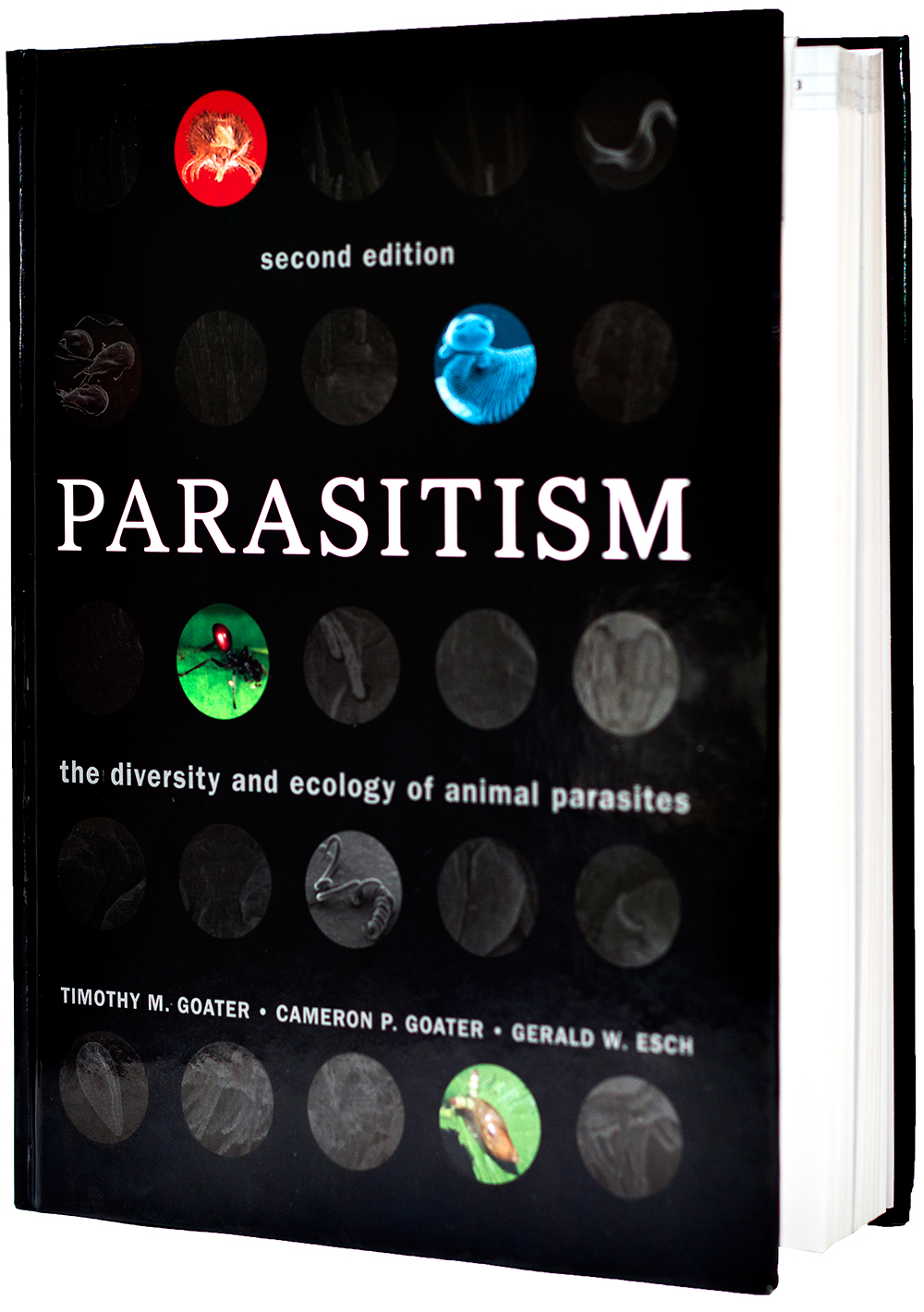An internationally recognized textbook on parasites has received a substantial upgrade due to the efforts of a University of Lethbridge biologist, his brother and an American colleague.

The second edition of Parasitism: The Diversity and Ecology of Animal Parasites, published by Cambridge University Press, is the result of years of work performed by the U of L’s Dr. Cam Goater (biological sciences), his brother Dr. Timothy Goater from Vancouver Island University and Gerald Esch of Wake Forest University in North Carolina.
Canadian, American and European faculty members are already using the 2014 text, aimed at senior undergraduate students.
“The first edition of the book accomplished a great deal. It was a text used heavily by professors and students in North America and around the world including Malaysia, and Japan. But it was significantly out-of-date,” says Goater. “The text has been completely rewritten. It is more conceptual and theoretical than it was before.”

The Goater brothers were approached by Cambridge eight years ago about creating a second version of the text. After years of writing and revisions the result is an encompassing product.
“There are texts available that deal with the diversity of parasites and those that tackle their ecology. This is the first text to offer a synthesis of both components,” says Goater, adding that the text will be valuable for students focusing on disciplines including biology, immunology, evolution, conservation biology and medical sciences.
The early reviews of the text are glowing. The book has been described by peers as “a true parasitological tour de force” and that “even the pros will learn from this book”. For Goater, the positive reception by his colleagues has made the years of work worth the effort, adding that he hopes the text becomes a valuable tool that will inspire students around the globe for many years.
Goater and his brother were born in Moose Factory, Ont. and grew up in North Bay. With nature as their playground, the two developed a love of ecology and biology. The brothers were eventually mentored by the same professor, the late Dr. Al Bush (a co-author of the original textbook), at Brandon University.
“Many people are curious as to how brothers end up in the same field. Certainly, our love of nature was inspired by our surroundings and we were fortunate to share a mentor, but our proximity in age (three years) also played a role,” says Goater.
Goater recalls a childhood incident, when he and his brother were teens, and they came across a sickly fox. In trying to help, the boys brought the fox home not knowing the animal was rabid. While the brothers had to undergo intramuscular injections of the prophylactic drug available at the time, they started to question why the fox was infected, why other animals weren’t, and how it was possible that a disease could change the demeanour of an animal. It is this complexity and their fascination with the phenomenon of parasitism that provides the focus of their text.
The enthusiasm the Goater brothers shared as youth has translated into their enthusiasm for teaching, benefitting students at both the University of Lethbridge and Vancouver Island University.
University of Lethbridge Provost and Vice-President (Academic) Andy Hakin says the release of this new text is emblematic of the type of university the U of L has become.
“Certainly this new text is an excellent career accomplishment for Dr. Goater and the knowledge contained within will benefit students for decades. However, more compelling to me is the experience Dr. Goater’s students are subject to in his class. Dr. Goater isn’t just teaching from a textbook – he wrote the textbook,” says Hakin.
Book Overview
Two core philosophies underlie the second edition of ‘Parasitism’, co-authored by Tim Goater, Cam Goater, and Jerry Esch. The first is that complex interactions that occur between parasites and their hosts – from the molecular cross-talk that occurs at the host-parasite interface, to the effects of parasites on host communities – are fundamentally ecological. The second is that a real appreciation for the phenomenon of parasitism requires knowledge of how natural selection has shaped parasite life cycles, life histories, and morphologies to solve particular problems associated with the parasitic lifestyle. Thus, for senior undergraduates that are being introduced to the phenomenon of parasitism in animals, the authors see a need for a single text with dual focus on the biodiversity and ecology/evolution of parasites. This dual, interdisciplinary approach, under one cover, is the hallmark of the text. The 17 chapters, eight of which are new since the first edition, have been thoroughly revised to meet the needs of a new generation of parasitology students, whether their interests lie in ecology, conservation biology, evolution, immunology, medical, wildlife, or veterinary sciences.
